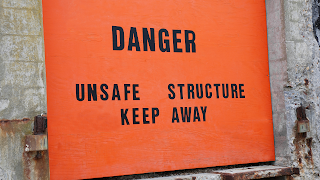Rocks on the Porch
I screamed and cried out for help, but just as always, no one came. The lashing continued as I cried, saying I had done what I was supposed to. I swept the porch after school. As the tears flowed and the welts formed on my skin, I could hear my grandmother trying to get through the locked door. She eventually did, saying, “She swept the porch. Nookie told me earlier she was out there when I asked where she was.” My grandmother’s voice told me she was tired of it, but it did not save me. She left the room, and the abuse continued. My mother did not listen; she said I embarrassed her in front of my friends, closed the door, and continued. Yes, the reason changed. It did not matter if I was innocent; she would get her frustration out on me. I grew more assertive to stand in the chair while still tied and charged at her. Lose or win, I would do what I needed to because I was tired. We threw each other around until it stopped. I had to sit in a tub of water, bruised and crying, to die because my brother decided to throw rocks on the porch, resulting in my beating. Because of the favoritism shown, I grew to dislike him intensely and was made to feel bad for doing so. The adults did not take accountability for what they did. They accused me of hating him, so every time I had to defend myself, my alleged hate caused the fights, not him swinging at me first. The rocks on the porch could have been the end for me because I was tired, and even though I had no idea where my strength to keep living was coming from, I lived. I did not die, nor did I succumb to the pills; every time I wanted to cut myself, I could not go through with it. When I packed my backpack to run away, no one in the neighborhood would take me. The rocks on the porch should have destroyed me, but the divinity within kept me.
As early as I remember, I
recall having highs and lows, highs of joy or deep sadness. When I was much older,
I realized I struggled with depression as early as seven years old. I never
felt safe. A deep void consumed me like Jonah in the belly of the alleged
whale. My need for acceptance was the driving force behind most of my actions.
I wanted to make my family proud, so I cleaned up better than most adults at a
young age, cooked, drew paintings, and got good grades. I did everything I
could to win the attention of my family. While my grandmother made sure I
dressed nicely and had nice things, the emotional deprivation kept me from
enjoying my nice things. No one protected me, so I grew up not trusting those
among me.
There were attempts on my part to be perfect, but nothing changed. When I was good, they ignored me; when I rebelled, they branded me a “Girl with a terrible attitude.” There was no happy medium within my family dynamic where I was concerned. I saw them consistently treat others decently while every chance someone got, I was their punching bag, mentally, physically, emotionally, and for a brief period, spiritually. I learned that I needed to be more than I was. Because of this, I led a life of overgiving. There was a never-ending war internally. The fight lasted for decades. I bounced back and forth between wanting to hurt myself or someone else.
It was hard growing up in
that house. Every assault robbed me of my voice. Accused of doing things, but I
could not defend myself, beaten but could not cry, neglected but could not
feel, tortured but expected to love. It was hell on earth, and I was
desperately ready to be done with life. At an early age, I learned to hold my
pain, just to suck it up because no one gave a damn. Trauma gave birth to
resilience because I did not have a choice. If I weren’t brutal, they would
have killed me. I had to be strong all the time. It was draining; there was no
time to breathe, either sink or swim. When I began dating, I thought I would
have an outlet, only to find that I was dating my abusers—same script,
different cast. I kept picking the familiar spirit.
.png)

.png)
.png)
Comments
Post a Comment